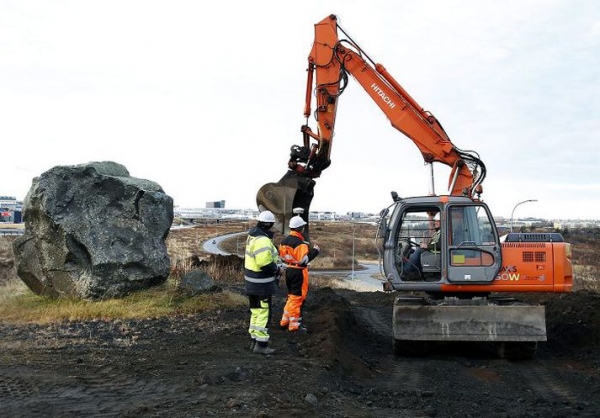One of the questions we regularly get is whether it's true the majority of Icelanders believe in elves and hidden people. This seems to be one of the facts people know about Icelanders, popping up regularly on English language entertainment or travel sites.
Read more: BBC Earth came to Iceland in search of elves and trolls
Elves keep skewing the polls?
This a tricky question. Elves and hidden people have been part of Icelandic folklore and myths for centuries, and Icelanders are quite fond of their myths. Elves are therefore unquestionably an important part of the popular imagination of Icelanders. But it is more difficult to determine with any absolute certainty whether Icelanders truly “believe” in elves and hidden people.
Anecdotal evidence suggests Icelanders do not believe in elves: Having lived our whole lives in Iceland we have only ever met a handful of people who actually believe in the existence of elves. At the same time public opinion polls indicate otherwise. Perhaps the opinion polls are skewed by responses from hidden people?
Read more: An American in Reykjavík: Do Icelander's actually believe in Elves or is the joke on us?
Flawed polls
One of the first of these surveys which caught international attention was a July 1998 poll conducted by the local newspaper DV which showed that nearly half of men said they believed in elves and 6 out of 10 women. The problem with this poll was that it asked whether people believed in elves and only gave people two options: Yes and No. For many people the question is a bit more complex.

Later polls which give people more options and more nuanced answers reveal that only a handful of people actually believe elves are real, in the same way as physical reality around them is real. Most people like to imagine elves and hidden people, or other unexplained supernatural or spiritual forces could exist in some form.
Read more: Information on elves on Snæfellsnes collected to help with planning of roads and construction
Others believe certain places, rocks or land formations could have some supernatural or spiritual powers or qualities. Iceland has plenty of such places. New roads and construction projects have been delayed or re-routed to take into consideration elf rocks – or to respect the wishes of people who want those rocks or natural formations protected.
Short answer: No. Longer answer: Yes
In other words: No. The majority of Icelanders doesn't believe in elves. But a large portion of the population is unwilling to deny their existence, and even more people respect the traditions, myths and popular believes and most people tread lightly when entering into known elf territory.
As they say: Better safe than sorry.
Most Icelanders will not deny the existence of elves. As they say: Better safe than sorry.
One of the questions we regularly get is whether it's true the majority of Icelanders believe in elves and hidden people. This seems to be one of the facts people know about Icelanders, popping up regularly on English language entertainment or travel sites.
Read more: BBC Earth came to Iceland in search of elves and trolls
Elves keep skewing the polls?
This a tricky question. Elves and hidden people have been part of Icelandic folklore and myths for centuries, and Icelanders are quite fond of their myths. Elves are therefore unquestionably an important part of the popular imagination of Icelanders. But it is more difficult to determine with any absolute certainty whether Icelanders truly “believe” in elves and hidden people.
Anecdotal evidence suggests Icelanders do not believe in elves: Having lived our whole lives in Iceland we have only ever met a handful of people who actually believe in the existence of elves. At the same time public opinion polls indicate otherwise. Perhaps the opinion polls are skewed by responses from hidden people?
Read more: An American in Reykjavík: Do Icelander's actually believe in Elves or is the joke on us?
Flawed polls
One of the first of these surveys which caught international attention was a July 1998 poll conducted by the local newspaper DV which showed that nearly half of men said they believed in elves and 6 out of 10 women. The problem with this poll was that it asked whether people believed in elves and only gave people two options: Yes and No. For many people the question is a bit more complex.

Later polls which give people more options and more nuanced answers reveal that only a handful of people actually believe elves are real, in the same way as physical reality around them is real. Most people like to imagine elves and hidden people, or other unexplained supernatural or spiritual forces could exist in some form.
Read more: Information on elves on Snæfellsnes collected to help with planning of roads and construction
Others believe certain places, rocks or land formations could have some supernatural or spiritual powers or qualities. Iceland has plenty of such places. New roads and construction projects have been delayed or re-routed to take into consideration elf rocks – or to respect the wishes of people who want those rocks or natural formations protected.
Short answer: No. Longer answer: Yes
In other words: No. The majority of Icelanders doesn't believe in elves. But a large portion of the population is unwilling to deny their existence, and even more people respect the traditions, myths and popular believes and most people tread lightly when entering into known elf territory.
As they say: Better safe than sorry.







